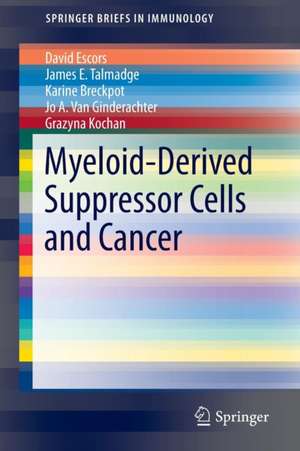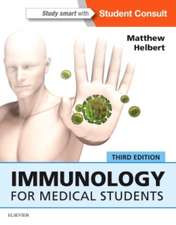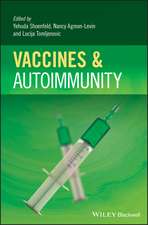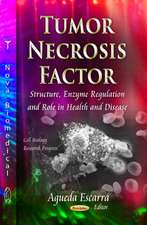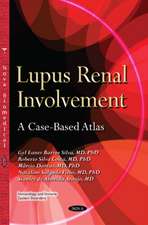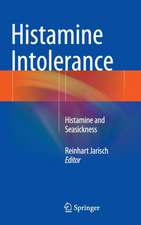Myeloid-Derived Suppressor Cells and Cancer: SpringerBriefs in Immunology
Autor David Escors, James E. Talmadge, Karine Breckpot, Jo A. Van Ginderachter, Grazyna Kochanen Limba Engleză Paperback – 23 mar 2016
Preț: 358.84 lei
Preț vechi: 377.73 lei
-5% Nou
Puncte Express: 538
Preț estimativ în valută:
68.66€ • 71.69$ • 56.83£
68.66€ • 71.69$ • 56.83£
Carte tipărită la comandă
Livrare economică 04-18 aprilie
Preluare comenzi: 021 569.72.76
Specificații
ISBN-13: 9783319268194
ISBN-10: 3319268198
Pagini: 102
Ilustrații: IX, 102 p. 8 illus. in color.
Dimensiuni: 155 x 235 x 6 mm
Greutate: 0.17 kg
Ediția:1st ed. 2016
Editura: Springer International Publishing
Colecția Springer
Seria SpringerBriefs in Immunology
Locul publicării:Cham, Switzerland
ISBN-10: 3319268198
Pagini: 102
Ilustrații: IX, 102 p. 8 illus. in color.
Dimensiuni: 155 x 235 x 6 mm
Greutate: 0.17 kg
Ediția:1st ed. 2016
Editura: Springer International Publishing
Colecția Springer
Seria SpringerBriefs in Immunology
Locul publicării:Cham, Switzerland
Cuprins
Controversies in Neoplastic Myeloplasia.- Differentiation of Murine Myeloid-derived Suppressor Cells.- Human MDSCs.- Ex Vivo MDSC Differentiation Models.- Immunoregulatory myeloid cells in the tumor microenvironment.- Signal Transducer and Activation of Transcription 3: A Master Regulator of Myeloid-derived Suppressor Cells.- Future Perspectives.
Caracteristici
Comprehensively explores the biology and role of MDSCs in cancer Covers therapeutic targeting via the STAT3 pathway, a major regulatory pathway in MDSCs functions as well as in tumour cells Particularly relevant for scientists working in the pharmaceutical industry and in oncology research Includes supplementary material: sn.pub/extras
